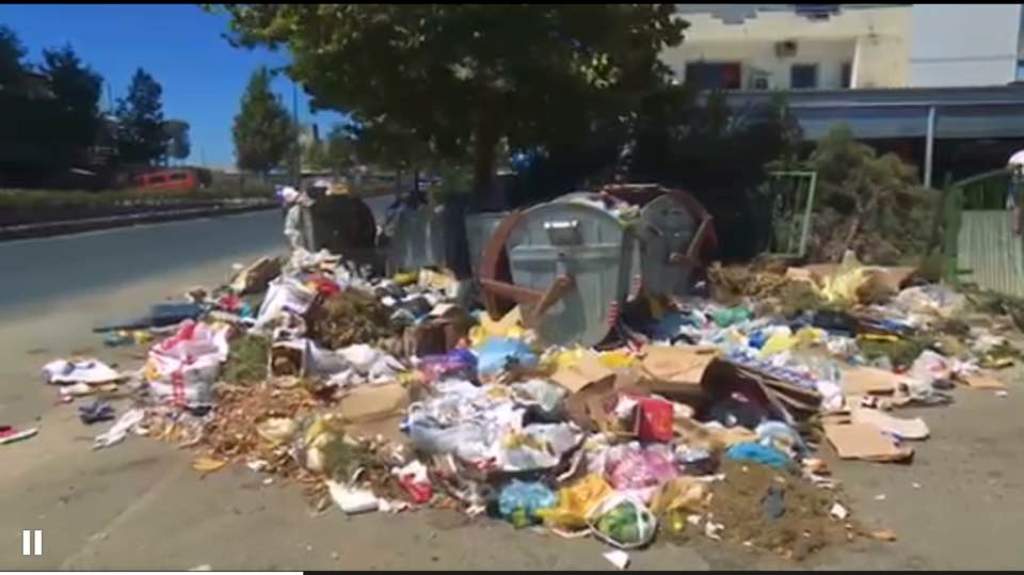
Albania is generating, but at the same time, it is also processing fewer urban wastes than before. This is the situation according to official statistics, at a time when the debate on the import of wastes from abroad and their management in the Albanian territory has once again turned into a political matter. “Last year, the amount wastes that was managed was 1.3 million tons, as opposed to 1.4 million tons in 2015, registering a fall of 8%”, the special report on the current situation of wastes in the country seems to indicate.
Meanwhile, last year, in total, Albanians have generated fewer wastes than before, namely, an amount of 373 kg per resident compared to 396 kg in 2015.
All of these figures seem to indicate a decline in the activity of the recycling industry, but also a decline of the amount of “raw material” that it works with, which, at the end of the day, is generated by Albanian citizens. According to the new bill on the management of wastes, the aim is to increase the number of wastes by importing from other countries of the world. All of this is happening at a time when, as experts claim, the recycling industry in our country has significantly declined. “The recycling of wastes has preserved the same levels from one year to another, with a declining tendency. So, 2016 saw the recycling of 17.2% of the total amount of wastes, while 2015 saw the recycling of 25.3%”, experts say. Meanwhile, let us recall that the bill on wastes was contested last year by civil society, but also by environmental organizations, claiming that through their import, Albania could let in the country uncontrolled wastes.
Albanians seem to generate more food related wastes
Everything that originates from plants and animals seem to make up the main category of wastes that Albanians generate in their day to day. Given the official term “organic wastes”, they seem to dominate the total amount of wastes in our country. “Organic wastes are the main components of urban wastes”, experts say on this, adding that last year, organic wastes accounted for 49.52% of the total amount of urban wastes, as opposed to 51.4% in 2015; 50.2% in 2014 and 41% in 2013. On the other hand, experts explain that organic wastes are followed by wastes created by wood, cardboard, glass, plastic, textiles, metals, electrical appliances, etc. Meanwhile, the smallest group that is mentioned among them is the group of hospital wastes, hazardous and nonhazardous, which, nonetheless, are handled by the recycling industry. But what is the real ratio of wastes which are generated and their management? Experts explain that there’s still an unbalance between them, whereby the latter’s quantity is lower than the former’s. “Based on the wastes generated per resident and the level of the coverage of the population with waste management services, it is estimated that the total amount of wastes is greater than the processed quantity of wastes”, they argue in relation to this situation, admitting the fact that there’s still room for more in managing wastes in the years to come.
2/3 of wastes are taken to landfills, very few are recycled
Around 2/3 of urban wastes generated in Albania are taken to landfills and many of them are recycled. This is, more or less, the situation that experts describe in relation to the process of the management of wastes in our country. According to them, in 2016, 77.7% of the total amount of wastes was taken to landfills, while in 2015, the amount of wastes that was deposited in landfills was 68.8%, registering an increase of around 9% of the total quantity of processed wastes. They add that there’s a slight tendency to reduce the amount of wastes which is burned mainly to produce thermal power. As far as managed wastes are concerned, official figures indicate that the largest amount belongs to “typical household wastes” group with 88% last year. Meanwhile, the other group is the industrial waste group along with urban wastes. “During the period 2013-2016, in many cases, wastes have been managed by municipalities and communes without contracting third parties to provide this service”, experts explain in relation to the way wastes are managed in the country.
